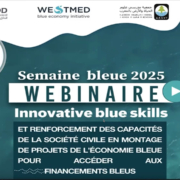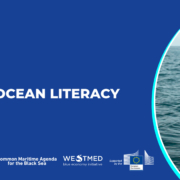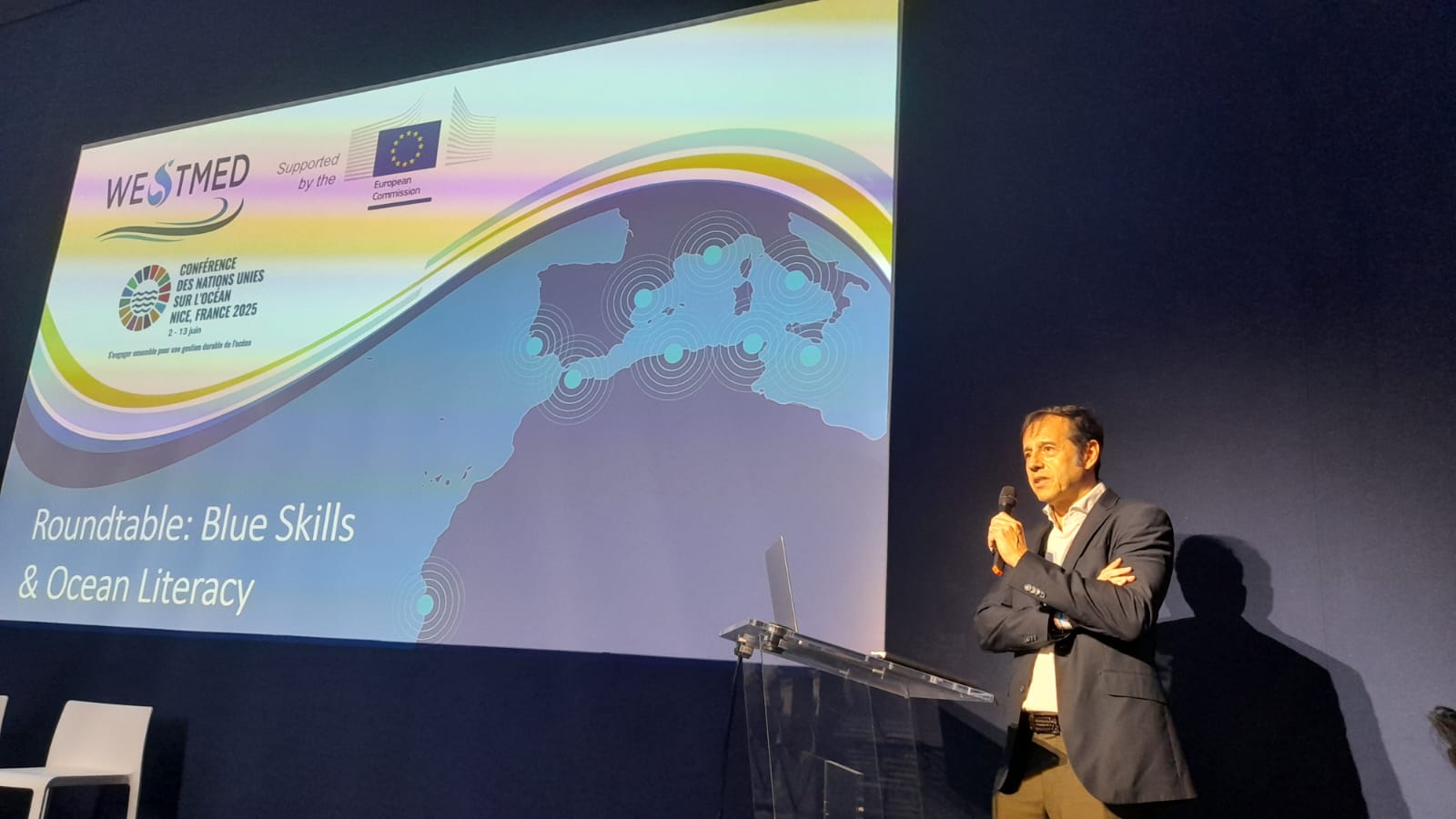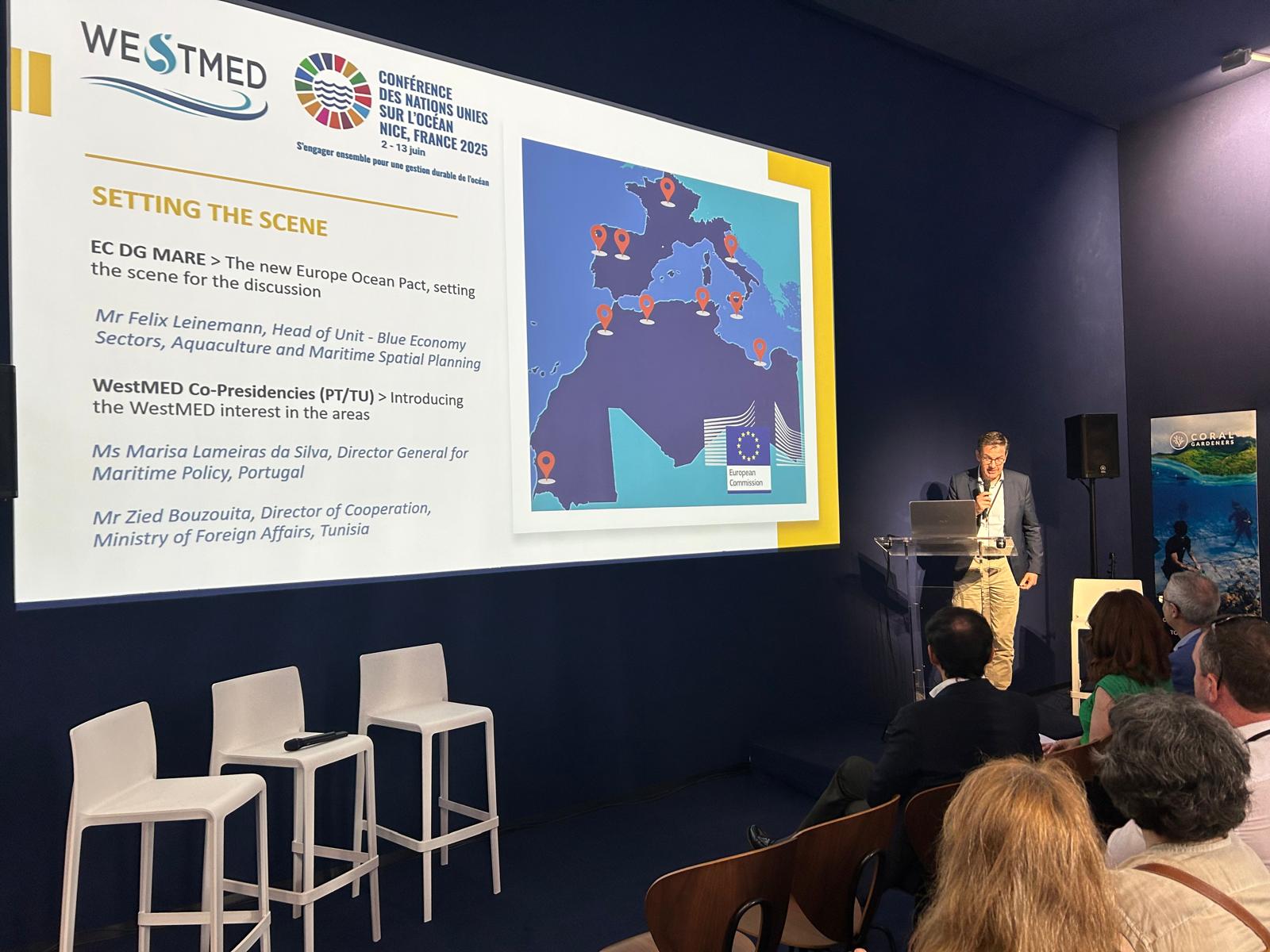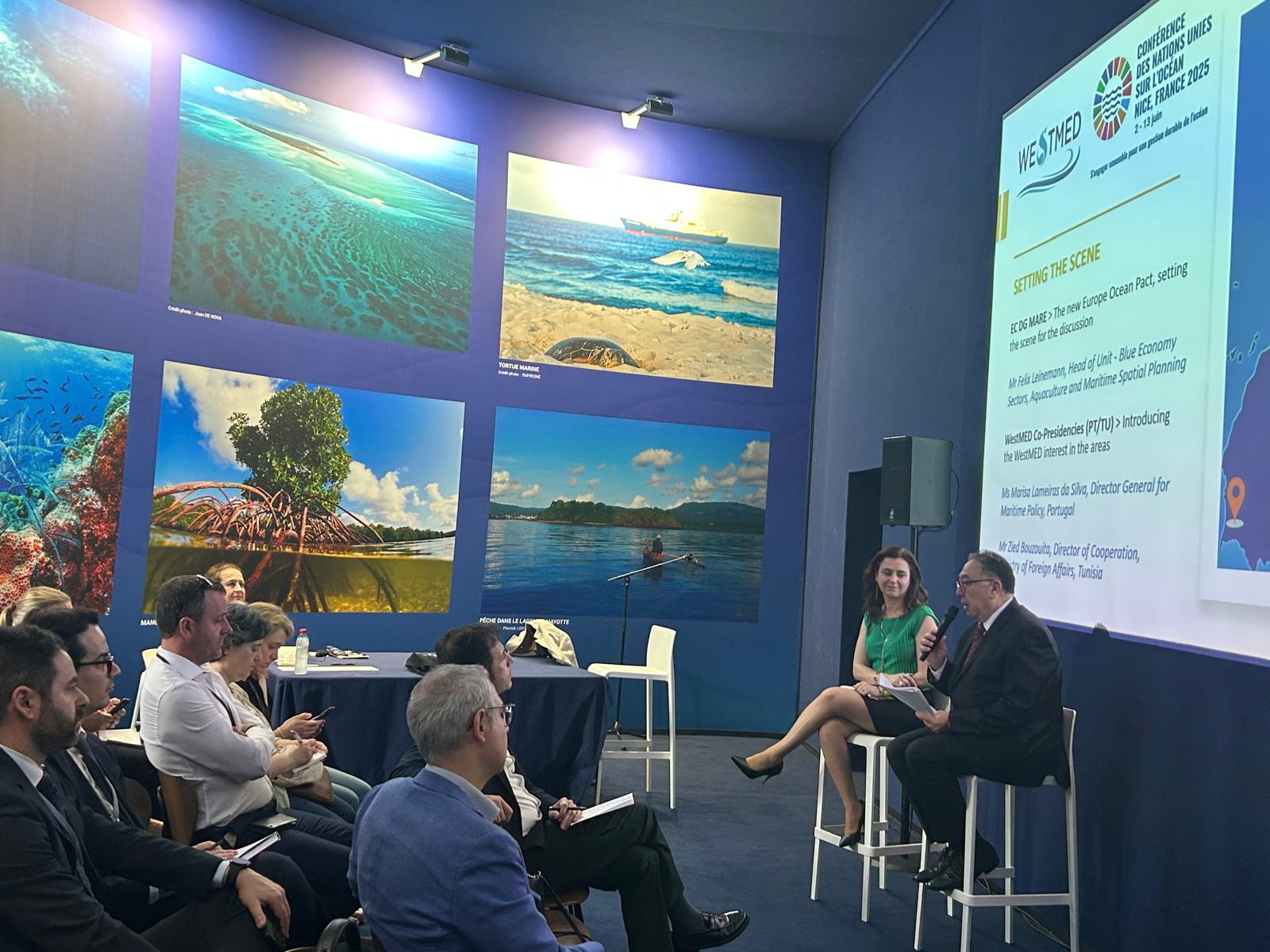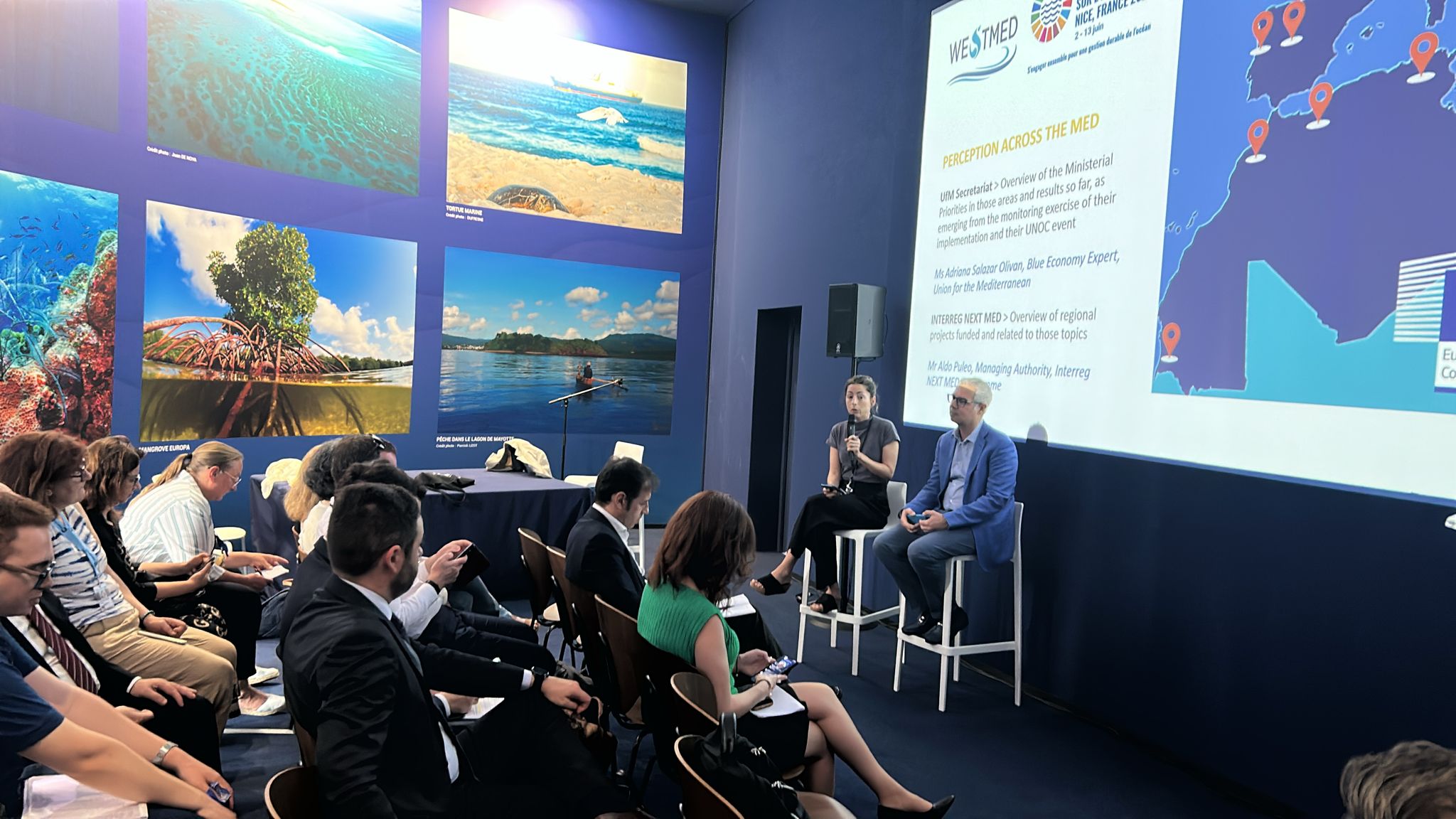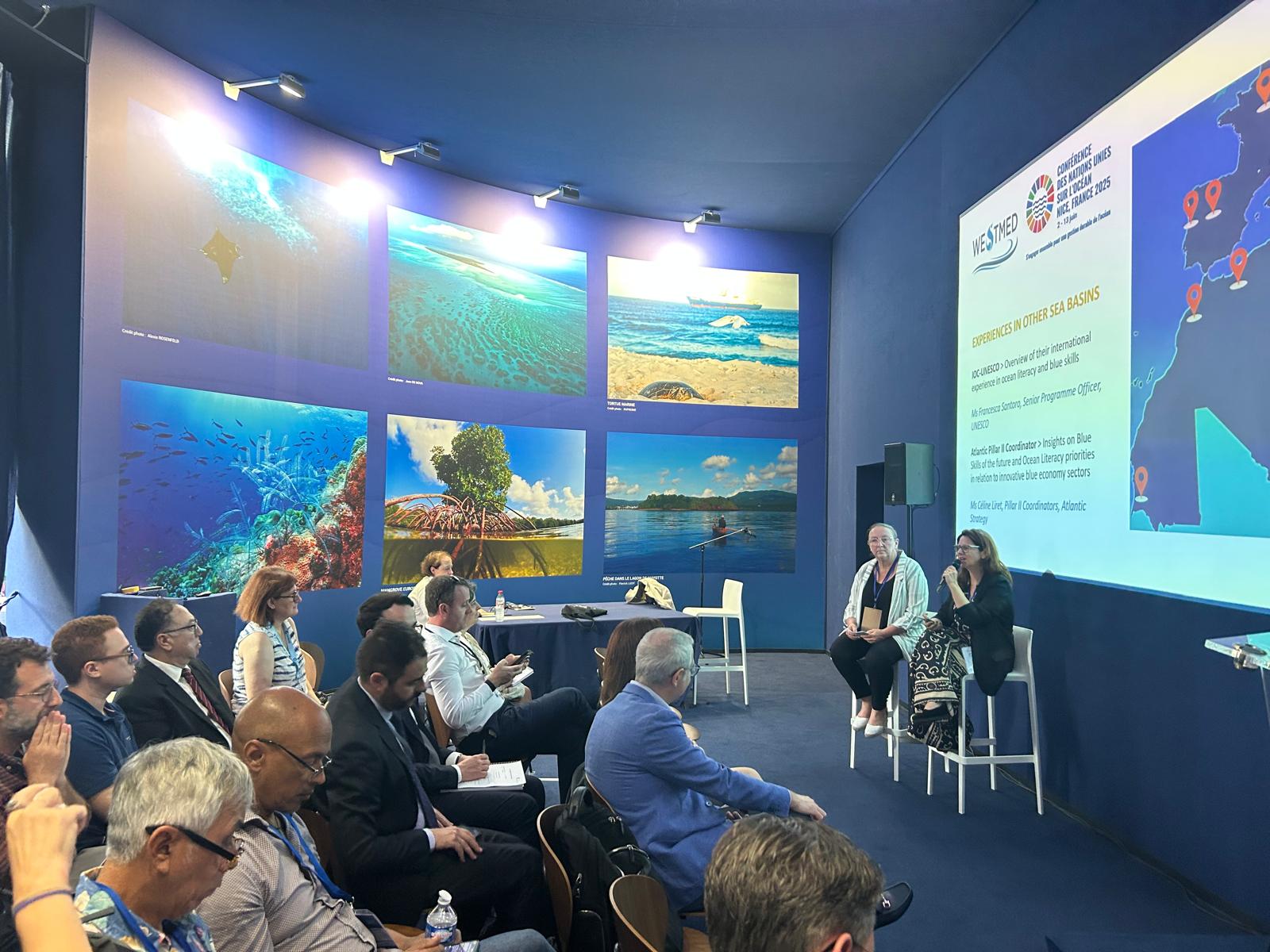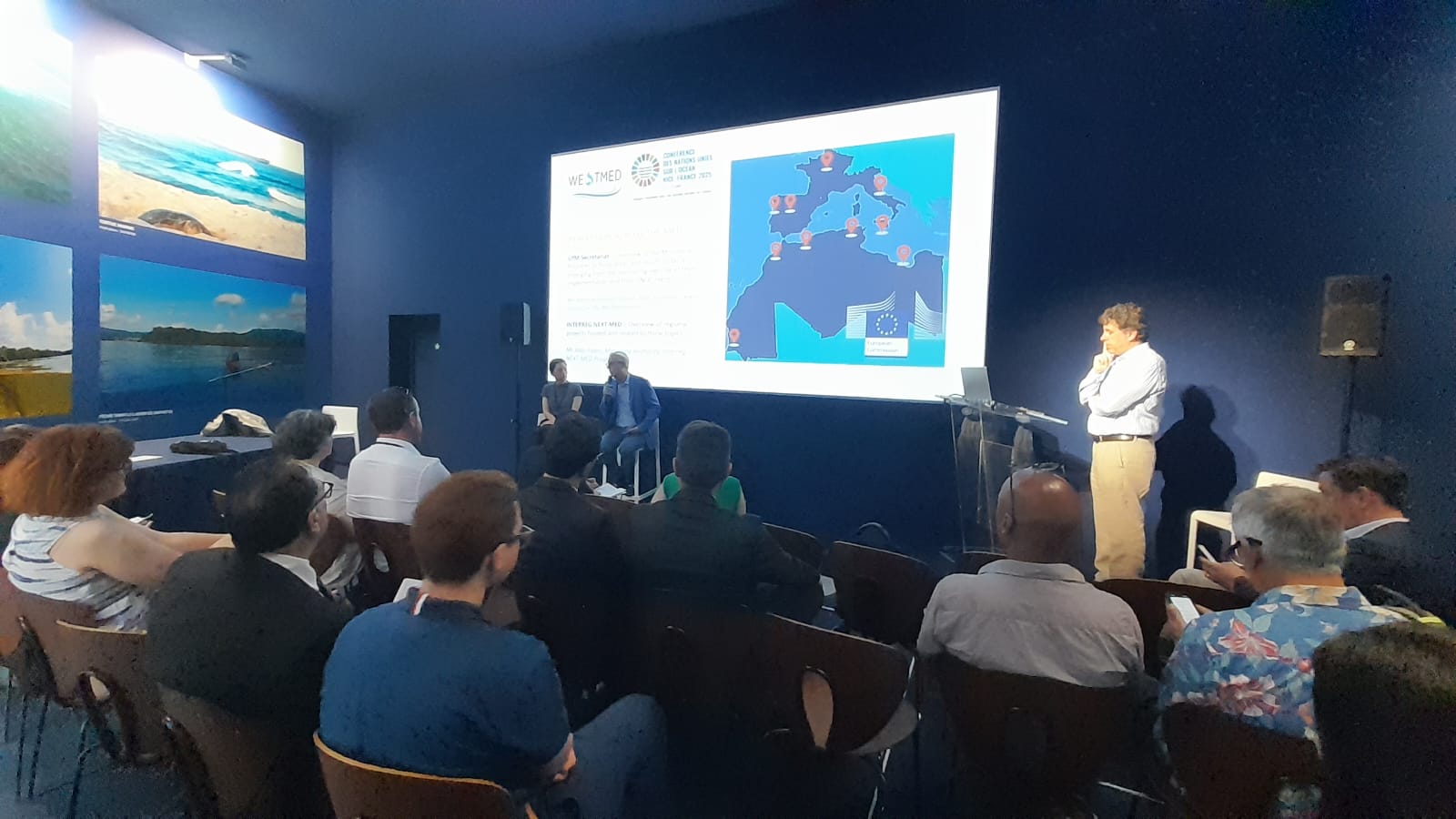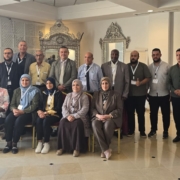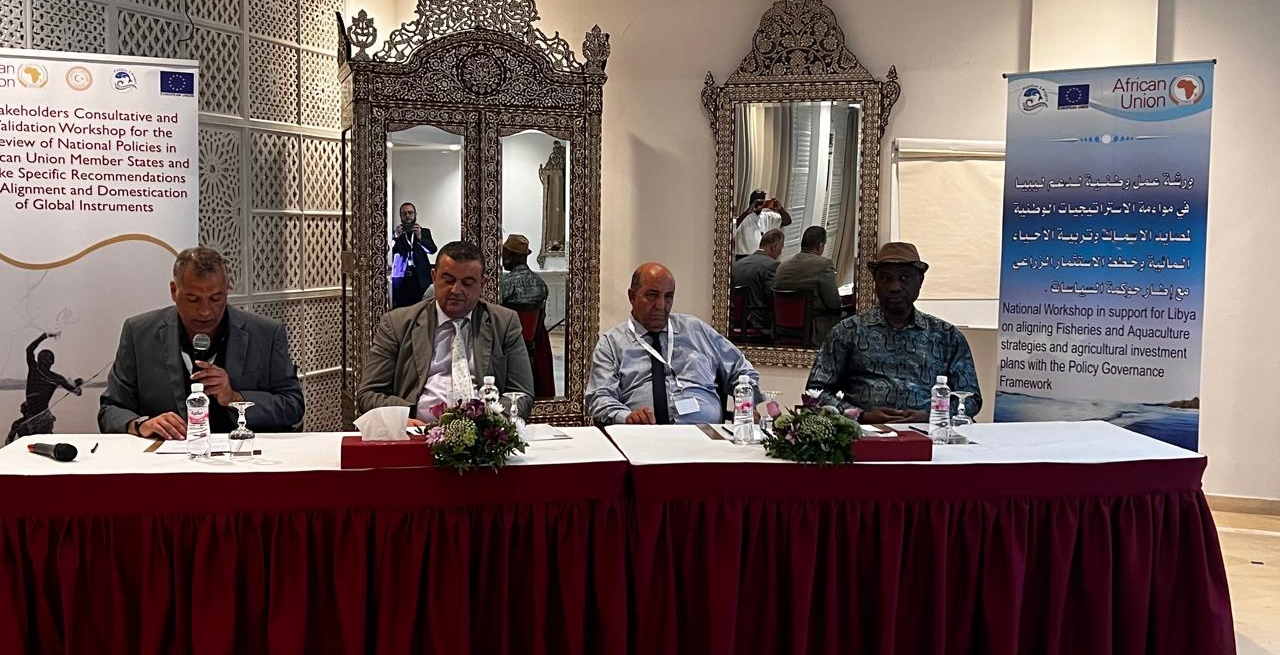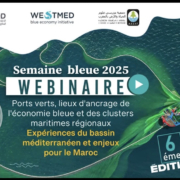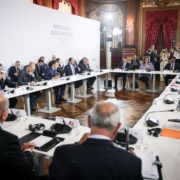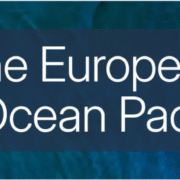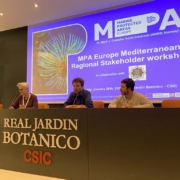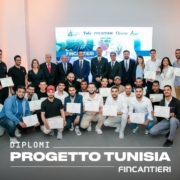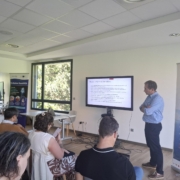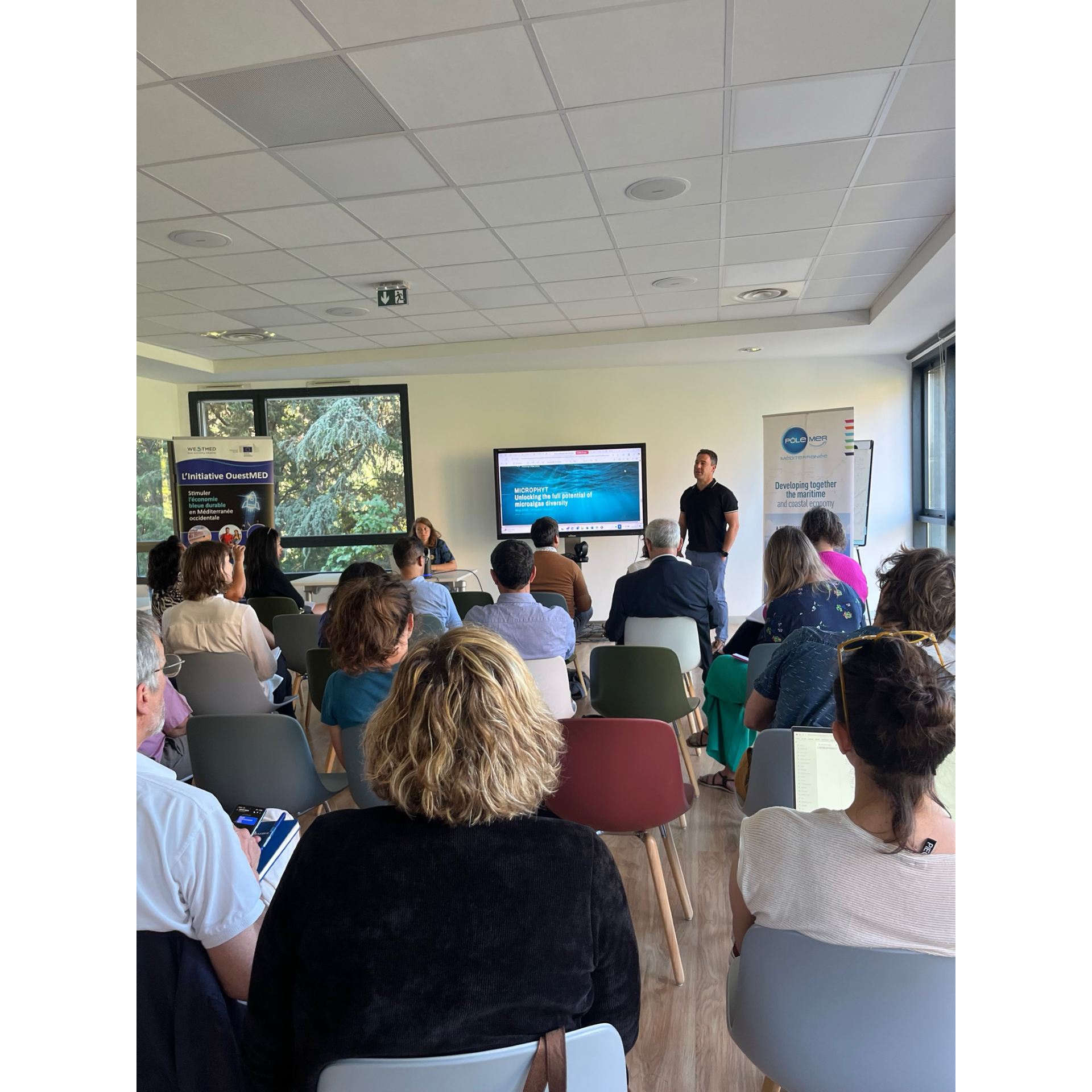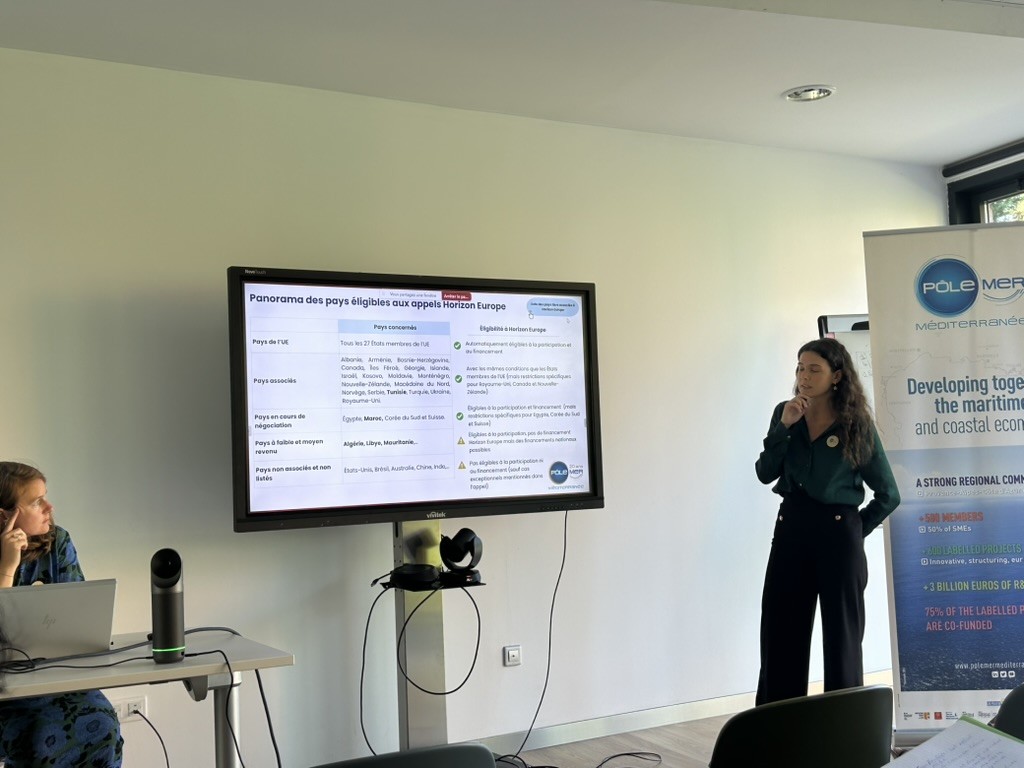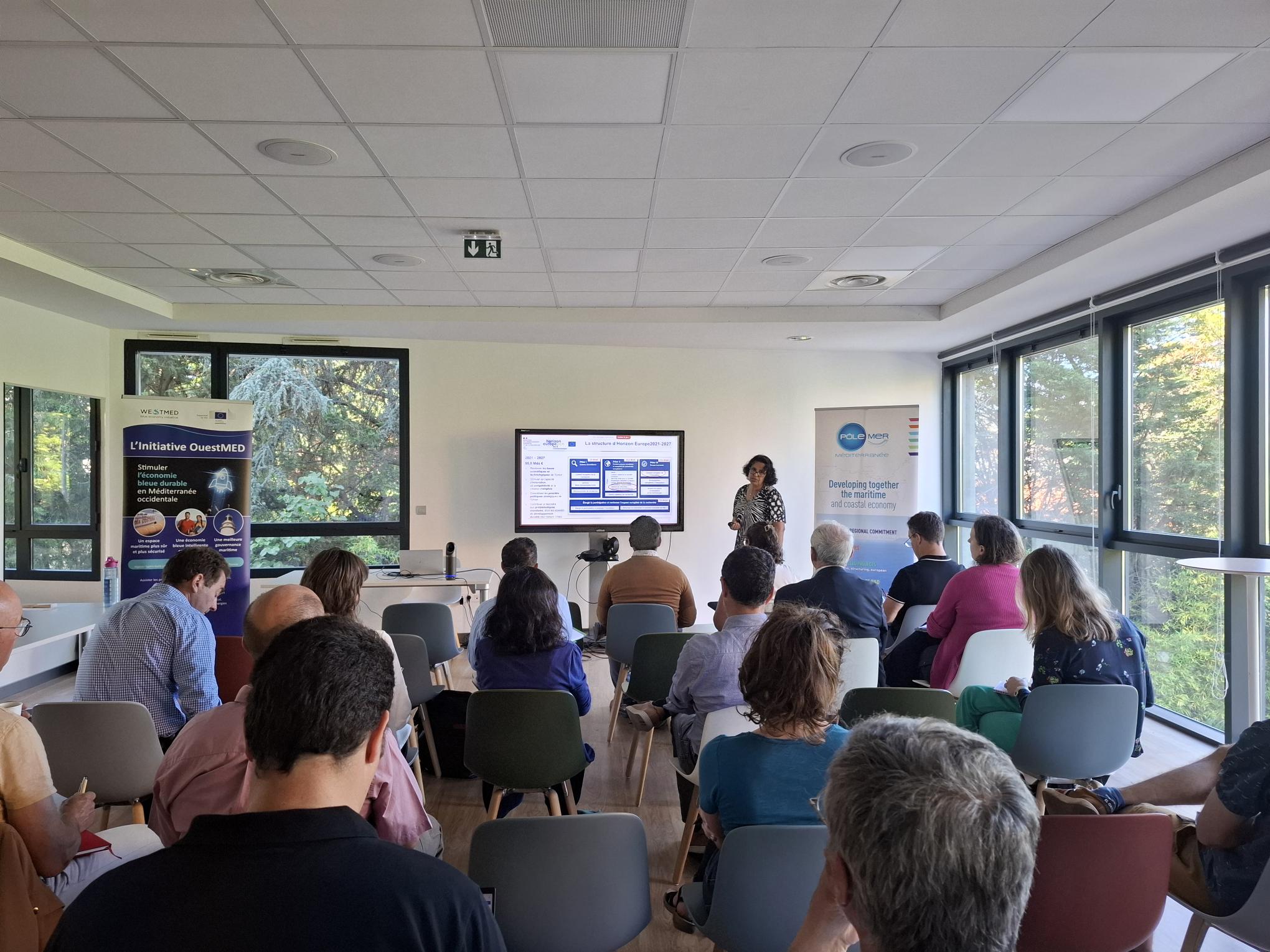Webinar in Morocco: ‘Innovative blue skills and civil society capacity building’
On 20 June, 2025, as part of Blue Week, AESVT Maroc (Association des Enseignants des Sciences de la Vie et de la Terre) and AMCDD (Alliance Marocaine pour le Climat et le Développement Durable) co-hosted a webinar on “Innovative blue skills and civil society capacity building,” together with the WestMED Initiative.
More than 40 people from various sectors related to the Blue Economy, from civil society, the private sector and ministerial departments took part in this webinar.
Matteo Bocci (Deputy Head of the EU Assistance Mechanism for EU Sea Basin Strategies) and Leonardo Manzari (WestMED’s National Hub Italy) provided valuable inputs on the WestMED Initiative, maritime clusters, finance possibilties and the do’s and dont’s of funding proposals. Hassan Agouzoul (WestMED’s National Hub Morocco) provided insights on the Moroccan Blue Economy and moderated the webinar.
This webinar built on a previous webinar, dated 10 June 2025, (“Green ports, anchor points for the blue economy and regional maritime clusters: Experiences from the Mediterranean basin and challenges for Morocco“) with its main focus on value chains and innovation ecosystems in maritime clusters. This event’s focus was on key blue skills for innovation: technical, scientific and soft.
Blue Skills
Following the opening remarks by Mr. Agouzoul, Mr. Janati (AMCDD) and Ms. Sayeh (AESVT), addressed the concept of ‘blue skills’ and the different types of skills: ‘hard’ technical skills and “soft” skills, which relate to character traits and interpersonal skills that allow a person to interact effectively with others. These soft skills are cross-sectoral and crucial to ensure innovation, defined succinctly as the response to challenges through the development of ideas and structures that ultimately enable the improvement of people’s living conditions.
Maritime clusters
This was followed by a discussion on maritime clusters and their various typologies: localized clusters for creating economic synergies, strategic clusters for developing policies and strategies, and hybrid clusters combining these two characteristics, which can be local, regional or sector-based.
Mr. Agouzoul helped situate these three types of clusters at Moroccan level:
- CIDEB – Commission Interministérielle de Développement de l’Economie Bleue (Interministerial Commission for the Development of the Blue Economy), chaired by the Head of Government and supported by a technical committee of institutional and private-sector specialists, acts as a national cluster for dialogue, strategic orientation and decision-making in the development of Morocco’s Blue Economy strategy.
- Regional clusters focus more on developing concrete proposals and setting up a pipeline of blue projects at regional level.
- And sectoral clusters are clusters such as those for green hydrogen or the naval transport industry.
These different types of clusters will need to interact, and civil society must ensure that it is also represented on the CIDEB/Technical Committee and regional clusters.
Project development
The rationale for preparing the technical set-up and consortium of North-South projects/partnerships was widely presented and discussed. A number of checks on the project’s relevance at local and sectoral level, the targeted financing tool, the project’s internal coherence, the project’s impacts and possible synergies, and risk assessment and mitigation are essential to design a project with a good chance of being financed.
The importance of setting up a consortium and building a solid partnership was then discussed, followed by a review of some of the numerous calls for projects available – 14 different funding sources were presented for the European Union alone.
The webinar concluded by emphasising the support that the WestMED Assistance Mechanism can provide through the technical working groups, in particular the “blue skills” group currently being created, the Maritime Clusters Alliance and WestMED’s National Hub in Morocco.
Download the agenda | Original event announcement
Here you will find the full recording of the webinar (in French)
Partnership and funding opportunities: Part 0. Do’s and dont’s | Part 1. Content and intervention logic | Part 2. Consortium building
More information
For more information contact the WestMED’s National Hub Morocco (Hassan Agouzoul): morocco@westmed-initiative.ec.europa.eu

